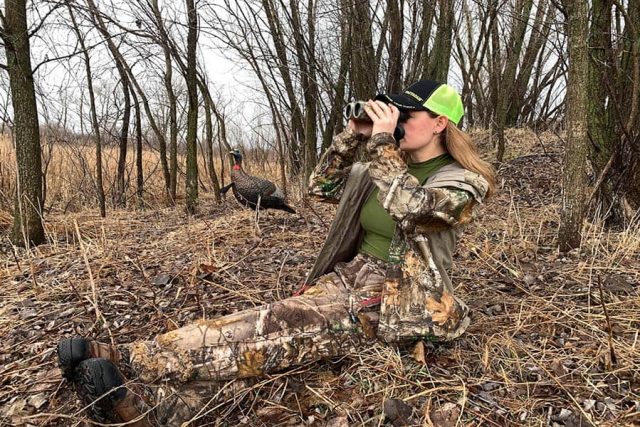Going hunting can be a fun and rewarding experience, but it’s important to know what you’re doing before you go out into the wilderness. In this blog post, we will discuss seven things that every hunter should know before they head out into the great outdoors. From understanding the game you are hunting to preparing for the weather, we will cover everything you need to have a safe and successful hunt. So read on, and get ready to take your hunting skills to the next level!
1. Understand the game you are hunting
Before you head out into the woods, it is important to have a good understanding of the animal you are looking to harvest. Do your research and learn about the habits, behavior, and anatomy of your target species. This will not only make you a more successful hunter, but it will also help you to be more ethical in your pursuit. It is also important to know the regulations surrounding the hunting of your chosen game. Make sure you are familiar with the seasons, bag limits, and other rules that apply in your area. Namely, there are different regulations for the big game, small game, and waterfowl hunting. The best way to ensure that you are following all of the rules is to get a hunting license and consult the regulations in your state or province.
2. Choose the right equipment
In order to be successful in hunting, you must have the proper equipment. Depending on the game you are hunting, this could include anything from a simple bow and arrow to a high-powered rifle. It is important to select the right weapon for the job, as well as any other necessary gear such as slingshot shooters, calls, decoys, blinds, and so on. You should also make sure that your equipment is in good working order and that you are familiar with how to use it before heading out into the field.
For example, if you are going deer hunting, you will need a rifle that is powerful enough to take down the animal, but not so powerful that it will cause excessive damage to the meat. You will also need to choose the right ammunition for your firearm. If you are using a bow, you will need to make sure it is properly tuned and that your arrows are sharp and in good condition.
3. Be prepared for the weather
The weather can be a big factor in hunting, so it is important to be prepared for whatever Mother Nature may throw your way. Dress in layers and pack extra clothing in case you get wet or cold. If you are hunting in an area with extreme temperatures, be sure to take the necessary precautions to avoid dehydration or hypothermia. It is also a good idea to check the forecast before you go so that you can plan accordingly.
4. Know your surroundings
When you are out in the wilderness, it is important to have a good understanding of your surroundings. Familiarize yourself with the area you will be hunting in and pay attention to terrain features, landmarks, and potential hazards. It is also a good idea to have a map of the area and to know how to read it. If you are unfamiliar with an area, be sure to ask someone who knows it well for help in planning your hunt.
On the other hand, always be prepared for the unexpected. Even if you think you know an area like the back of your hand, things can change quickly and without warning. Be alert and be ready to adapt to whatever situation may arise.
5. Be aware of your own limitations
It is important to know your own physical limitations and to hunt within your abilities. If you are not in good shape, it is best to stick to hunting areas that are relatively flat and easy to access. Likewise, if you are not comfortable with using certain types of equipment, don’t force yourself to use it just because someone else is. Only hunt as hard as you are physically and mentally prepared to, and always err on the side of caution.
6. Make safety your top priority
Above all else, safety should be your number one concern when hunting. Always follow the rules of safe gun handling and be sure to wear proper safety gear. Be aware of your target and what is beyond it, and never shoot at something you are not absolutely sure of. When in doubt, don’t pull the trigger. A good idea is to always hunt with a partner so that you can take turns watching for the game and keeping an eye on each other. Once you have harvested an animal, be sure to properly field dress it and take precautions to avoid contracting any diseases.
7. Have realistic expectations
It is important to remember that hunting is not always a sure thing. No matter how much preparation you do, there is always a chance that you will come home empty-handed. Don’t get discouraged if this happens, and don’t put yourself in danger by taking unnecessary risks. Just remember that the journey is often just as rewarding as the destination and that every day spent in the outdoors is a good day.
Moreover, be respectful of the animals you are pursuing. If you are successful in harvesting one, take the time to appreciate the creature and give thanks for the food it will provide. If you are not successful, understand that this is part of hunting and move on. Either way, always remember to follow the principles of fair chase and respect the wildlife that you are pursuing.
Hunting can be a fun and rewarding experience, but it is important to remember that it is also a serious undertaking. By following these simple tips, you can help to ensure that your hunt is a safe and successful one. Keep in mind that hunting is a privilege, not a right, and always show respect for the animals and the environment. With a little planning and preparation, you can make sure that your next hunt is one to remember.














